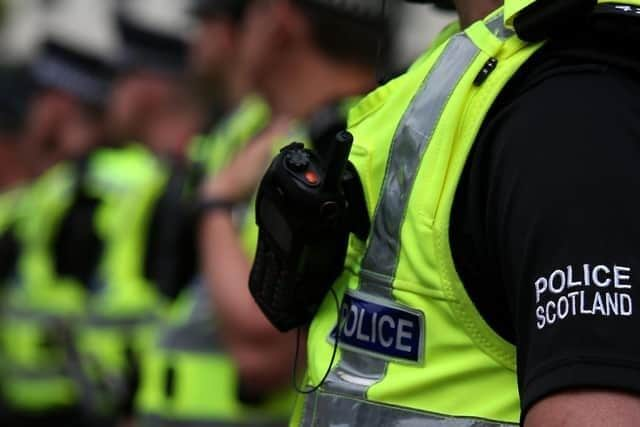More than 7,000 hate crime complaints in first week of new law, police say
More than 7,000 hate crime complaints were recorded in the first week of a controversial new law coming into force, it has been confirmed.
Police Scotland said 7,152 complaints were made online between Monday, April 1 and Sunday, April 7.
Advertisement
Hide AdAdvertisement
Hide AdThe Hate Crime and Public Order (Scotland) Act has proved hugely contentious since its implementation, with fears over a chilling effect on freedom of expression.


There have also been concerns about the demand placed on police officers, with fears this will result in budget cuts later in the financial year.
Nearly half of all the online complaints were made on the first day, the figures showed, before the number of reports slowed later in the week.
As well as the more than 7,000 online reports, police also dealt with 430 incidents in the first week where a hate crime tag was added, while there were 34 calls to either 101 or 999 relating to a hate crime and 141 emails sent to Police Scotland for the same purpose.
Of these, 240 were recorded as hate crimes – 3.3 per cent of all reports – while 30 were logged as non-crime hate incidents, meaning they did not meet the threshold for a criminal offence. The vast majority of complaints, police said, were made anonymously.
Some 120 of the crimes reported had a racial aggravator attached, while 42 had an aggravator for sexual orientation, 38 for disability, 21 for both age and religion and eight for transgender identity. More than one aggravator can be logged per recorded crime.
Slides produced by Police Scotland said two crime reports were raised “in relation to hate crime incidents” at the Old Firm game on Sunday. More than four out of five (80.49 per cent) of officers have undertaken the two-hour training course on the application of the new legislation.
SNP justice secretary Angela Constance said the 240 recorded hate crimes demonstrated “that this legislation is required and needed to protect marginalised and vulnerable communities most at risk of racial hatred and prejudice”.
Advertisement
Hide AdAdvertisement
Hide AdShe said: “These statistics show that of the significant number of online hate crime reports made to Police Scotland since April 1, almost half came in on the day the new legislation commenced, with the number of daily complaints falling by 90 per cent within the first week. These comparison statistics show how vital tackling hate crime is and how it is not a new issue for Scotland’s police and justice system.”
But Tory MSP Sharon Dowey said the figures highlighted “the huge toll Humza Yousaf’s shambolic hate crime law is already having on Scotland’s overstretched police force”. She said: “It beggars belief that the SNP have introduced this when one in five officers still haven’t received the paltry two-hour training that’s supposed to equip them to enforce the new law.
“On top of the deluge of complaints that Police Scotland are having to field every day, the fact that 240 in a week were deemed to have been crimes just adds to the intolerable strain on officers who have already been forced to not investigate certain other crimes due to SNP cuts. The Scottish Police Federation have warned that this is unsustainable, so Humza Yousaf should admit he’s got it badly wrong and bin this disastrous law.”
A Police Scotland spokesperson said: “This data highlights the substantial increase in the number of online hate reports being received since April 1. This significant demand continues to be managed within our contact centres and, so far, the impact on frontline policing, our ability to answer calls and respond to those who need our help in communities across Scotland has been minimal.
“All complaints received are reviewed by officers, supported by dedicated hate crime advisers, and dealt with appropriately, whether that is being progressed for further assessment, or closed as they do not meet the criteria under the legislation.”
